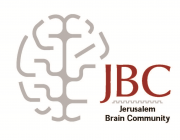
Raz Yirmiya
Raz Yirmiya obtained a bachelor's degree in Psychobiology from Haifa University and M.Sc. in Physiology from the Technion – Israel Institute of Technology. He did his Ph.D. in Neuroscience under the supervision of Prof. John C. Liebeskind at the University of California, Los Angeles (UCLA). After a 2-years post-doctoral fellowship in the Cousins Center for Psychoneuroimmunology at UCLA he returned in 1990 to an academic position in the Department of Psychology at the Hebrew University of Jerusalem, in which he was appointed to a full Professor in 2003. Raz Yirmiya is married to Professor Nurit Yirmiya and they have 4 children. Raz Yirmiya is a past-president of the Psychoneuroimmunology Research Society (PNIRS). He was an Associate Editor of Brain, Behavior and Immunity (Elsevier Press, Impact Factor=6.2) and a recipient of the Norman Cousins Award for outstanding contributions to research in psychoneuroimmunology.
Research in the laboratory of Raz Yirmiya focuses on the role of inflammatory processes, in general, and microglia cells, in particular, in brain and behavior functioning. In early research Yirmiya used animal models of various infectious, autoimmune and neurological diseases to establish the relationships between brain inflammatory cytokines and sickness behavior symptoms. He is specifically known for providing the first experimental evidence for a relationship between immune activation and major depression. In parallel studies, Yirmiya employed unique controlled and prospective experimental models of disease in humans, demonstrating that immune challenges induce cytokine-mediated disturbances in behavioral, emotional and cognitive functions. Together, these studies directly contributed to the formation of novel conceptualizations and the development of clinically effective treatments for inflammation-associated major depression. In recent years, Yirmiya discovered that microglia cells and pro-inflammatory cytokines in the brain play a critical role in normal neuro-behavioral processes, including hippocampal-dependent memory consolidation, neural plasticity, neurogenesis, and the modulation of these processes by environmental enrichment (Picture 1). On the other hand, disturbances in the structure and functioning of microglia cells and pathophysiological levels of the inflammatory cytokine interleukin-1 in the brain underlie the impairments in cognition and neurogenesis associated with stress and neurodegenerative diseases (Picture 2), as well as the development of depression (Picture 3). Yirmiya also discovered (together with Itai Bab from the Hebrew University of Jerusalem), the existence of brain-to-bone communication pathways, mediated by the sympathetic and parasympathetic nervous systems, and reported that chronic stress-induced depression produces bone loss via modulation of these pathways, forming the foundations of a new field of research that they termed "NeuroPsychoOsteology".Research Interest:

